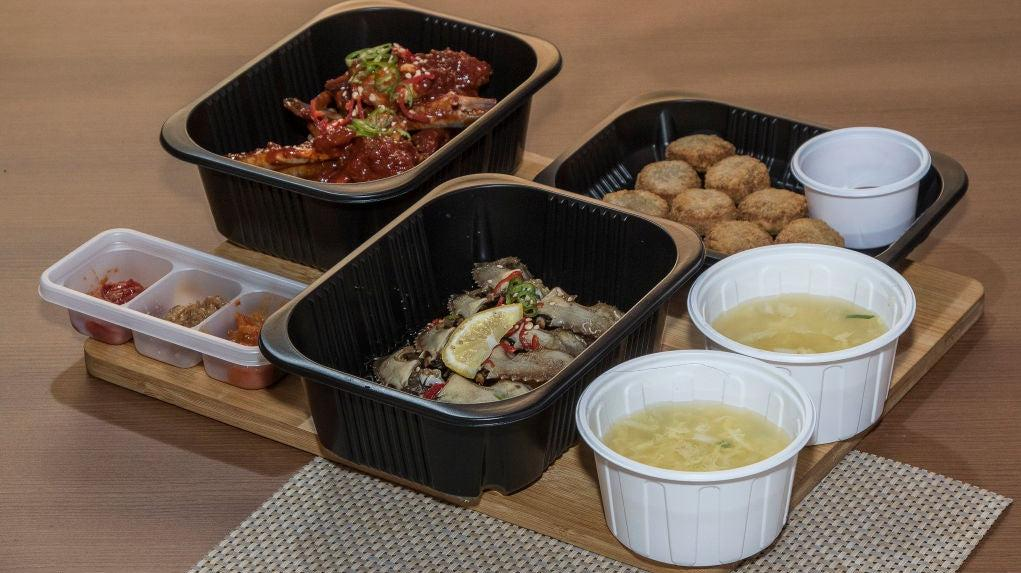A Mandatory Travel Quarantine In South Korea Turns Into Two Weeks Of Feasting
If you're traveling to South Korea, make sure you book at least two extra weeks on your trip, because when you arrive, you'll be on mandatory quarantine for two weeks due to the country's strict travel policies. James Park, a writer over at Eater, went to visit his parents in Korea in December for the first time in seven years, and he documented his experience in a quarantine facility, where he had to hole up for 14 days before he was allowed out to see his family.
After much arduous travel, including isolation on a train car, Park finally made it to his hometown of Pohang and the quarantine facility where he had to stay for 14 days. Unlike many travelers who stay in government facilities, Park was able to stay in a private resort-turned-quarantine facility run by the company his father works for. His room was small and only had a desk, a chair, and a television. He slept on the floor. I can already feel myself getting stir crazy just thinking about this situation. I get restless sitting in a chair for five minutes; I can barely imagine how I'd feel holed up for weeks.
All food and drink was supplied to Park; obviously he wasn't going to be able to go out and pick up groceries. Meals were delivered to his door three times a day, with a phone call signaling their arrival—no knock—in order to minimize the possibility of face-to-face contact. Everything came in a dosirak, which is a tray compartmentalized for things like rice and banchan (side dishes).
I love dosirak, and the first meal is dreamy. I'd been expecting rice and maybe a couple of banchan, but this dosirak is premium: four banchan, two main entrees, a bowl of rice, and a soup, per set. By the time I return from my testing, they've already brought both my lunch and breakfast, so I combine them to have a quarantine feast of braised pollock, spicy braised chicken, seasoned spinach, rice cake-stuffed fish cakes, spicy raw squid jeotgal, egg, and dumpling soup, soy-braised potato and chicken, crispy spring rolls, seasoned dried squid, seasoned garlic stems, radish with yuzu, kimchi, and spicy beef and radish soup. All of it for me.
This wasn't quick convenience food: this was freshly cooked food, and it was just as delicious as it sounds. In the government facilities, all the food is instant and pre-made, though apparently it is good, but the facility where Park was staying had a cafeteria on-site to feed employees and their families. Park's parents dropped off food for him, which was allowed. They left it at the front desk, and a worker later brought it up to Park's room.
While the food was great, Park had no access to a microwave, so if he didn't eat it immediately, it just got cold. But later, just over halfway through his quarantine, Park discovered that an air fryer was allowed (although there was some initial hesitation from the staff), and his parents dropped one off. It was an instant game changer for Park.
Of course, there was loneliness and boredom (but still work on a very weird schedule: Park's job is based in New York, so he had to work late at night to accommodate the difference in time zones). And then, finally, freedom.
I hope you check the piece out, as it comes with lots of photos, videos, and details aboutpersonal experiences that I'm sure you'd be feeling too while stuck by yourself in a small room. I know I would. I'm hoping that the next time I travel, things will have changed, but we'll just see what time and this pandemic brings.
